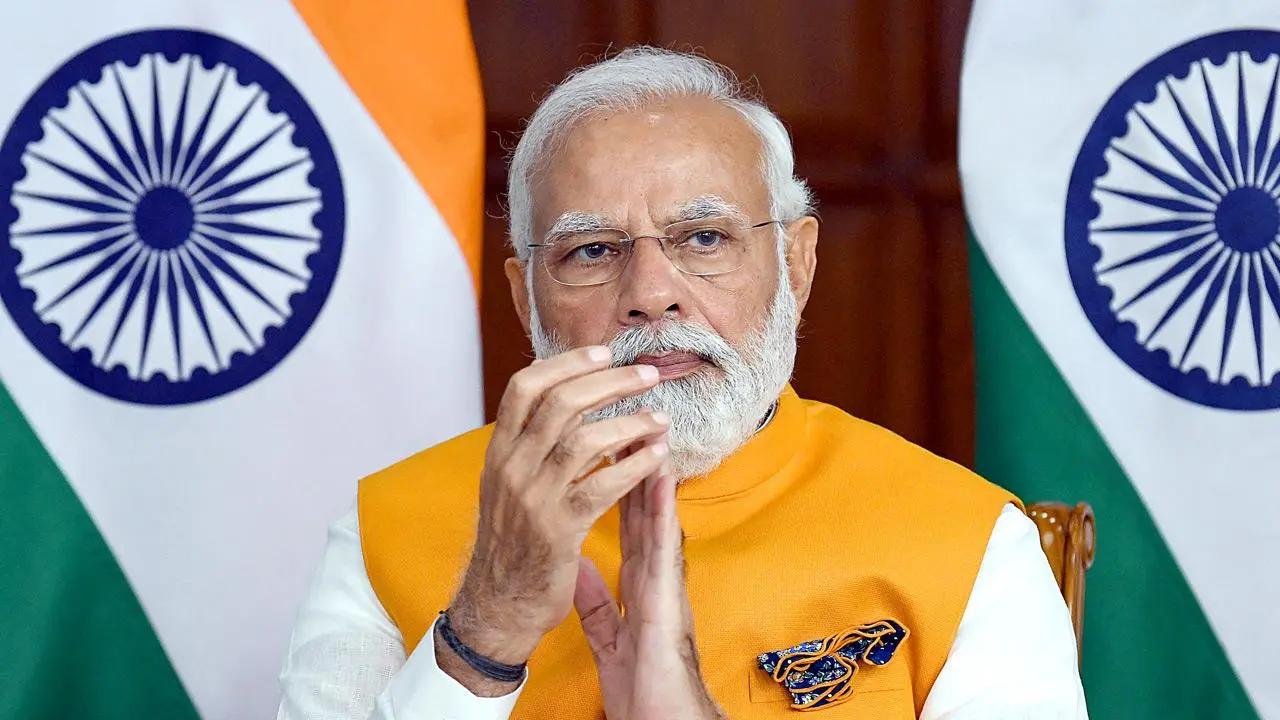At the National Unity Day parade in Gujarat, PM Modi accused the opposition of not fully implementing Ambedkar’s Constitution due to Article 370 in Jammu and Kashmir, asserting its removal as a tribute to Sardar Patel’s vision of unity.

File Pic
Key Highlights
- PM Modi accuses opposition of failing Ambedkar’s vision
- Calls Article 370 removal a tribute to unity
- Calls Article 370 removal a tribute to unity
Prime Minister Narendra Modi, during his address at the National Unity Day parade in Kevadia, Gujarat, took aim at the opposition, alleging that for 70 years, the Constitution framed by Dr B.R. Ambedkar was not fully upheld. He also accused those who, in his words, "chant the name of the Constitution," of disrespecting its values.
PM Modi highlighted that Article 370, which granted special status to Jammu and Kashmir, had acted as a barrier to the full implementation of the Constitution. He stated, “Article 370 has been buried forever. Today, for the first time, voting has occurred without discrimination in this assembly election. The Chief Minister of Jammu and Kashmir has taken an oath on the Constitution of India, a moment that must bring great satisfaction to the Constitution's framers.” According to the Prime Minister, the removal of Article 370 has enabled a more unified application of the Constitution, paying homage to the legacy of Sardar Vallabhbhai Patel, the country's first Home Minister and Deputy Prime Minister.
The Prime Minister also expressed that this move to remove Article 370 is a tribute to Sardar Patel's vision of unity, aligning with the values of the Constitution. He added, “For 70 years, Ambedkar’s Constitution was not implemented across the nation due to Article 370. Those who shout slogans about the Constitution have, in reality, disrespected it.”
Highlighting the significance of National Unity Day, Modi encouraged every citizen to participate in building the nation's unity and integrity. He expressed the view that India’s commitment to unity has been reflected in government policies over the past decade, stating, “The last ten years have seen remarkable achievements in India’s quest for unity and integrity. Our dedication to national unity can be seen in each of our government’s initiatives.”
Addressing the role of language in fostering unity, PM Modi praised India's New Education Policy, describing it as an example of how the country is nurturing unity by celebrating its diverse languages. "Promoting India’s linguistic diversity strengthens our bonds. The New Education Policy is a proud example that has been embraced by the nation,” he said.
Modi extended Diwali greetings to all Indians, acknowledging the cultural significance of the festival. "This year’s National Unity Day brings with it a special coincidence. Today we celebrate both unity and the festival of Diwali. Diwali, which lights up the entire country, now also connects India with the world, being celebrated as a national festival in many countries. I extend my heartfelt Diwali wishes to all Indians at home and abroad, as well as to India’s well-wishers."
National Unity Day, or Rashtriya Ekta Diwas, is celebrated on October 31 to honour Sardar Patel’s legacy in uniting India’s princely states. Born on 31 October 1875 in Nadiad, Gujarat, Sardar Patel is widely recognised for his efforts in integrating 562 princely states into the Republic of India. Since 2014, National Unity Day has been observed with 'Run for Unity' events across the country, drawing people from various backgrounds. Sardar Patel passed away on 15 December 1950, leaving behind a legacy of unity and strength.
PM Modi concluded his address by encouraging citizens to engage actively in efforts to promote national unity, viewing each effort as a tribute to Sardar Patel and a contribution to a more integrated India.
(With inputs from ANI)
 Subscribe today by clicking the link and stay updated with the latest news!" Click here!
Subscribe today by clicking the link and stay updated with the latest news!" Click here!








